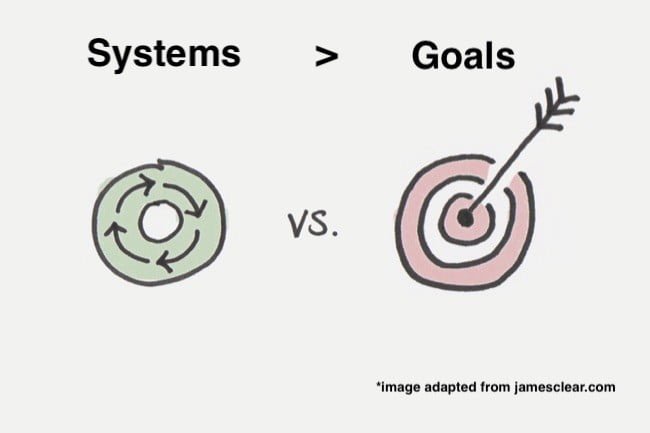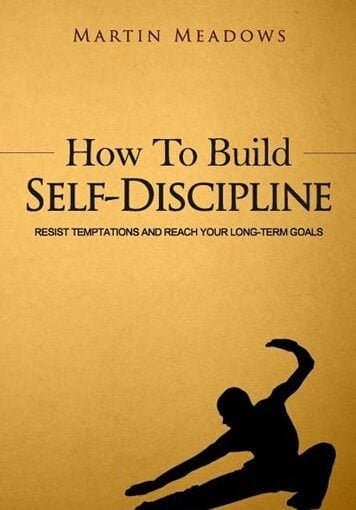
Setting goals is often touted as the key to success. From New Year’s resolutions to quarterly business targets, goals have been the go-to method for achieving personal and professional milestones. However, as I discovered there’s a more effective approach: focusing on systems.
The Drawbacks of Goals
Goals Are Temporary
One major drawback of goals is their temporary nature. You set a goal, work towards it, and once it’s achieved, you often find yourself in a state of limbo. What’s next? This cycle can lead to periods of aimlessness and diminished motivation. I experienced this firsthand with several projects, where reaching the goal left me questioning what to pursue next.
Goals Can Create Stress and Anxiety
Goals can also be a source of stress and anxiety. The pressure to achieve a specific target can be overwhelming, leading to burnout and frustration, especially if progress is slow. I remember feeling disheartened when I didn’t achieve my ambitious fitness goals as quickly as I’d hoped. The constant focus on the end result overshadowed the incremental progress I was making.
Goals Are Often Out of Your Control
Another issue with goals is that they can be affected by external factors beyond your control. This can lead to disappointment and a sense of failure, even when you’ve put in significant effort. For instance, setting a goal to secure a promotion at work can be derailed by organisational changes or economic downturns, despite your best efforts.
The Benefits of Systems
Systems Create Sustainable Habits
Unlike goals, systems are about creating sustainable habits. A system is a series of daily actions and routines that lead to continuous improvement. For example, rather than setting a goal to read 50 books a year, I built a system of reading for 30 minutes every day. This approach not only made reading a habit but also significantly increased the number of books I read over time.
Systems Reduce Stress and Anxiety
By focusing on the process rather than the outcome, systems reduce stress and anxiety. You’re not fixated on a distant target; instead, you’re engaged in daily actions that contribute to long-term success. This shift in mindset made my cold shower experiment more manageable. The goal was to boost my focus and dopamine levels, but the daily routine of gradually reducing the water temperature became a refreshing and stress-free habit.
Systems Are Within Your Control
Systems are entirely within your control. You decide the actions you’ll take each day, which reduces the influence of external factors. When I tackled my backyard makeover, I didn’t set a rigid deadline. Instead, I focused on the system of working on a small section each day. This approach allowed me to adapt to unforeseen challenges and still make consistent progress.
Practical Advice for Building Systems
Start Small
Begin with small, manageable actions. If you want to build a reading habit, start with just 10 minutes a day. Gradually increase the time as the habit becomes ingrained.
Be Consistent
Consistency is key to building effective systems. Stick to your daily actions even when you don’t feel like it. Over time, these small efforts compound into significant results.
Focus on the Process
Concentrate on how you perform each task, not just the outcome. This process-oriented mindset encourages continuous improvement and keeps you engaged.
Embrace Flexibility
Systems allow for flexibility. If circumstances change, you can adjust your daily actions without feeling like you’ve failed. This adaptability is crucial for long-term success.
My Journey with Systems
Honesty and No Complaints
One system I integrated was mastering honesty and reducing complaints. Instead of setting a goal to “be more honest” or “complain less,” I built a habit of daily reflections and focusing on actionable steps rather than grumbling about issues. This shift in perspective significantly improved my relationships and overall happiness.
Intermittent Fasting and Diet
When I decided to try intermittent fasting and a keto diet, I didn’t set a lofty weight loss goal. Instead, I started with a simple system: fasting for 10 hours, then gradually extending it to 20 hours. Coupled with a keto diet, this system improved my energy levels and mental clarity. It became a part of my lifestyle rather than a daunting objective.
Meditation and Mindfulness
Attending a 10-day silent meditation retreat in the Blue Mountains was another profound experience. The goal was to achieve inner peace and clarity. But again, it was the system of daily meditation, starting at 4 am, that brought about the transformation. This experience deserves a dedicated post, but suffice it to say, the daily practice of meditation has had a lasting impact on my life.
The combination of all these habits that you build into your daily and weekly routines will form a comprehensive system. Focusing on these systems will naturally lead to achieving your goals.
Final words on The Power of Systems
One key takeaway from my journey is the realisation that “do not count on motivation, count on discipline.” Motivation can be fleeting, but discipline, built through consistent systems, will carry you through. By focusing on systems rather than goals, I’ve been able to create sustainable habits that drive continuous improvement and personal growth.
Shifting from a goal-oriented approach to a system-focused mindset has been transformative for me. It’s not about setting lofty targets but about creating daily habits that lead to long-term success. Whether it’s cold showers, backyard projects, honesty, or meditation, the systems I’ve built have had a profound impact on my life. So, next time you’re tempted to set a goal, consider building a system instead or along with your goals and focus on improving your system. The journey will be more rewarding, and the results will follow naturally.
Here are some other valuable sources, books, and articles about the benefits of building a system:
Books
- “Atomic Habits” by James Clear:
- This book delves into the science of habits and how small changes can lead to remarkable results. Clear emphasizes the importance of building systems over setting goals to create lasting change.
- “The Power of Habit” by Charles Duhigg:
- Duhigg explores the science behind why habits exist and how they can be changed. The book highlights the power of systems in personal and professional life.
- “Deep Work” by Cal Newport:
- Newport discusses the benefits of focusing on meaningful work and creating systems to achieve deep concentration and productivity.
- “So Good They Can’t Ignore You” by Cal Newport:
- This book argues that skills and crafts are more important than passion and explains how building systems to develop these skills can lead to career success.
- “The 4-Hour Workweek” by Tim Ferriss:
- Ferriss provides practical advice on streamlining your life through effective systems to increase productivity and focus on what truly matters.



